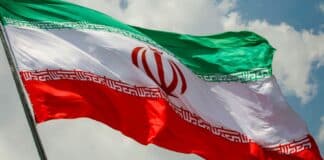China’s Foreign Ministry issued a cold, carefully worded response to the election of Japan’s first female prime minister, conservative leader Takaichi Sanae. Rather than offering congratulations, Beijing reiterated its expectations that Japan conform to Communist Party positions on Taiwan and historical disputes, signaling continued diplomatic friction between the two Asian powers.
Takaichi was confirmed as prime minister this week after narrowly securing leadership of the ruling Liberal Democratic Party (LDP). The party, plagued by corruption scandals and the loss of a key coalition partner, regained its governing mandate through a new alliance with the more hawkish Nippon Ishin party. Takaichi’s leadership marks a significant rightward shift in Japan’s government.
Known for her admiration of former British Prime Minister Margaret Thatcher and her close ties to the late Japanese leader Shinzo Abe, Takaichi supports stronger defense policies, economic stimulus, and closer relations with the United States. She is expected to meet with President Donald Trump during the upcoming Asia-Pacific Economic Cooperation (APEC) summit.
President Trump praised her election, calling Takaichi “a highly respected person of great wisdom and strength” in a statement following her LDP leadership win.
In contrast, China offered no praise or recognition. On Tuesday, Foreign Ministry spokesman Guo Jiakun stated, “China noted the result of the vote and considers it Japan’s internal affair.” He emphasized China’s demand that Japan honor commitments on Taiwan and historical issues, referencing long-standing political documents between the two countries.
By Thursday, when asked again, Guo doubled down, insisting China’s muted response was “appropriate” and in line with diplomatic norms. State-run Global Times echoed these sentiments, emphasizing China’s “consistent and clear” stance and its hope that Japan would work with China to maintain the bilateral relationship.
Beijing’s discomfort stems largely from Takaichi’s strong support for Taiwan. In 2021, she held a call with Taiwanese President Tsai Ing-wen, a move that violated China’s “One China” policy and provoked backlash. She has also pledged to strengthen defense ties with Taiwan and visit the controversial Yasukuni Shrine, which honors Japan’s war dead, including those involved in World War II-era atrocities—a frequent source of Chinese condemnation.
On October 17, Chinese Foreign Ministry spokesman Lin Jian attacked Takaichi for her monetary offering to the shrine, accusing Japan of failing to “make a clean break with militarism” and urging it to “be prudent on historical issues.”
As Takaichi begins her term, her unapologetically conservative platform and pro-sovereignty stance signal Japan’s shift away from postwar pacifism. Her alignment with U.S. leadership and openness toward Taiwan will likely continue to provoke China, raising the stakes in regional diplomacy and security.



